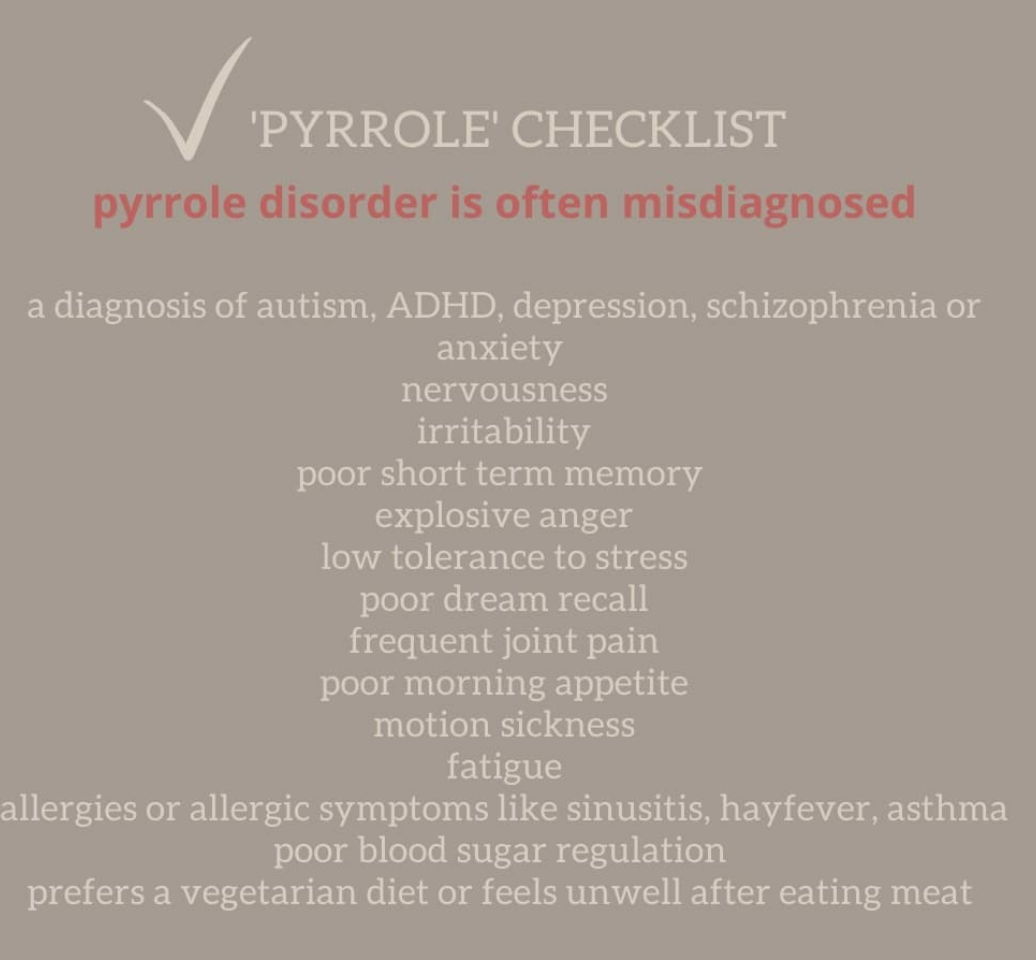

Pyrroluria, suspected to be a genetically acquired condition, involves a chemical imbalance leading to an excessive production of chemicals called ‘pyrroles’. These chemicals can be elevated in certain individuals, giving rise to the condition known as pyroluria.
This imbalance can be triggered by various stressors, both internal and external. In many cases, internal stressors are gut-related, though heavy metal toxicity, poor adrenal and thyroid function, and other factors contributing to oxidative stress can also play a role.
Pyrroles have an affinity for key nutrients such as zinc and B6, binding to them and causing imbalances that result in multisystem symptoms. These symptoms can vary widely, often leading to misdiagnoses of behavioral disorders like ADHD as well as gastrointestinal issues, like IBS. Testing for pyrrole disorder involves assessing urine pyrrole levels and conducting blood tests to analyze the nutrient profile. Treatment typically includes high-dose nutrient supplementation to address nutritional insufficiencies, alongside a focus on identifying and resolving the root cause of stress.



